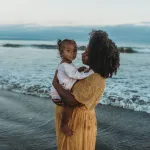President Joe Biden announced new guidelines Wednesday for distributing an influx of funding for one of the oldest federal energy assistance programs in the country. The program, known as the Low Income Home Energy Assistance program, or LIHEAP, is a lifeline for families — many led by women — struggling to pay their utility bills.
Originally created to help low-income households pay their heating bills, the program has been increasingly used for cooling assistance. As climate change has led to more frequent heat waves and hotter summer months, this funding has become more crucial to pay for rising energy costs.
The new guidelines rolled out in an executive order — among several climate-related orders announced this week — expand on the shifting needs of the cooling side of the program, emphasizing new ways that funds could be used to meet residents grappling with historic heat waves at a time when energy costs are skyrocketing.
States have always had some flexibility in how they direct the funding, whether it’s to cooling centers, or to pay energy bills and for home weatherization. The new language further allows funding to be used to curtail utility disconnections in the summer months, increase crisis benefits for summer utility bills, and help those who qualify to purchase swamp coolers and heat pumps. Heat pumps can both cool and heat up a home, are electric, and are more energy efficient than air conditioners. The funding could also be used to pay for service and to repair current cooling units.
LIHEAP does not track demographic data of those who participate in the program, but the low-income population it serves is disproportionately women, who make up 56 percent of the population living below the poverty line. According to the U.S. Census Bureau, 23 percent of women-led households live in poverty, more than double the percentage of men-led households.
Low-income households also tend to live in older and less energy-efficient housing, which due to things like leaky windows, poor insulation, and deteriorating living conditions also leads to higher energy bills. On average, low-income people face an energy burden three times higher than other households, according to the Department of Energy.
“The data really show that there are several groups that are disproportionately impacted by energy insecurity,” said Diana Hernández, associate professor of sociomedical sciences at Columbia University. That includes low-income communities of color and households with children, she said. “From a gender perspective, female-headed households are also very specifically impacted. And that makes sense because they are also represented more so among poor households.”
Biden’s orders came after Sen. Joe Manchin said he would not support legislation with new spending to combat climate change, blocking its passage in the Senate.
“I have a responsibility to act with urgency and resolve when our nation faces clear and present danger. And that’s what climate change is about. It is literally, not figuratively, a clear and present danger,” Biden said in announcing the executive orders, standing in front of a closed Massachusetts coal-fired power plant. “The health of our citizens and our communities is literally at stake.”
While he acknowledged the public health threat of the climate crisis, he fell short of declaring a climate emergency, which had been rumored in the days leading up to his speech. Most of his executive orders were related to previous announcements and commitments the administration had already made, including expanded funding for a FEMA program aimed at building community resilience to climate change and off-shore wind energy development.
The funding he highlighted for LIHEAP had also been previously announced earlier in the year. The administration had infused the energy assistance program with additional funding from the American Rescue Plan and the Infrastructure Bill, more than doubling the annual allocation of $3.37 billion. The administration announced an additional $385 million in April.
“Any sort of funding always makes some subtle difference even if it is minimal,” said Bobuchi Ken-Opurum, director of research programs for the Texas Energy Poverty Research Institute. “The $385 million would provide around 3 to 5 percent more service in addition to what was already set out in 2022.”
When facing energy insecurity, which at its most basic is the inability to adequately meet household energy needs, Hernández said, people might choose to forgo heating or cooling their homes to cut costs. On the other hand they might forgo other essentials like food or medicine to pay their utility bills, according to a survey released by the U.S. Energy Information Administration in 2018. Eleven percent of those surveyed also noted keeping their homes at unhealthy or unsafe temperatures.
“I think in the end, what it feels like is a pretty dehumanizing experience. Because in modern society, we expect to be able to not only have access to these things, but to be able to use them in everyday life without feeling so restricted by the economics,” Hernández said.
“The need for LIHEAP is significant. The Energy Information Administration estimates that in 2020 approximately 27 percent of U.S. households had difficulty paying their energy bills,” according to an emailed statement from Health and Human Services Administration for Children and Families. But LIHEAP serves only about 17 percent of households eligible for the program, the statement said.
“Part of it is that people don’t know enough about the program so they aren’t enrolling,” said Hernández. “[It’s] also that the budgets are limited, so right now cooling assistance in New York City has closed for the season. Technically it should go through August.”
Ken-Opurum said conducting outreach to low-income communities through groups on the ground could help fill the gaps, as would making the process to apply less onerous. “One of the important things is education and developing more programs that are more grassroots to reach these households,” she said. “[And to] find better, more tailored communication strategies. That may be a way to reach single female lead households, and more specifically let them know that these funds are available.”







